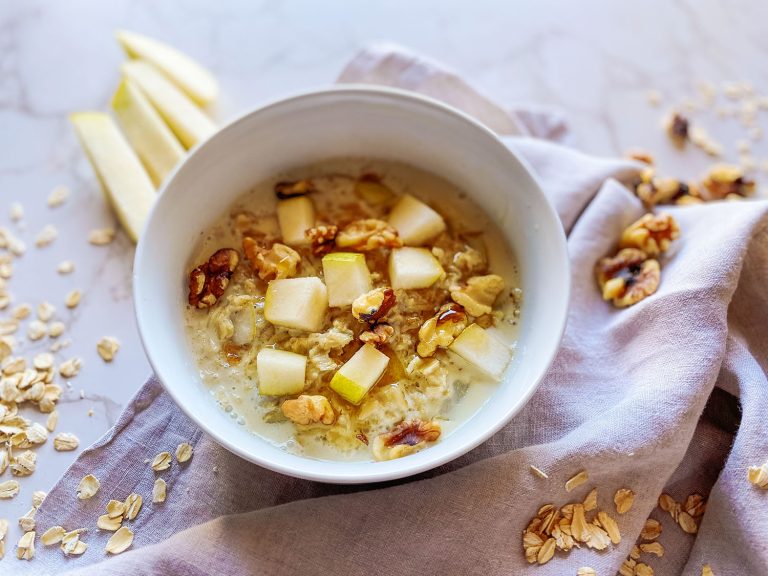The mind and body work together to keep you both physically and emotionally healthy. In addition, research continues to point to compelling data about how the brain impacts the gut and vice versa.
In some ways, the gut resembles a secondary brain because it contains many of the same neurotransmitters in your central nervous system. Therefore, understanding this relationship- and being more mindful of this connection- can help you boost your overall well-being. Let’s get into what you need to know.
How the Gut and Brain Are Connected
The brain and gut are undoubtedly linked, and problems in one area can result in issues in the other area. Likewise, how you take care of yourself will affect the entire system.
For example, have you ever felt nauseated when you were anxious? Or have you ever experienced a bad stomach ache when you felt depressed or sad? What about feeling the butterflies when you were excited?
These expressions aren’t just popular figures of speech. Instead, they reveal information about how the gut responds to various emotions.
What Is the Vagus Nerve?
Vagal nerves are a hub for communication between the brain, heart, and digestive systems. The vagus nerve specifically controls and regulates various bodily functions, including,
- Digestion
- Mood
- Heart rate
- Saliva production
- Taste
- Speech
- Urine output
- Skin sensations
You can’t change or control these functions- they happen automatically and without intervention. Subsequently, these nerves represent a crucial part of the parasympathetic nervous system.
The parasympathetic nervous system maintains rest and restoration within the body. This coincides with its opposing sympathetic nervous system, which is responsible for controlling your fight-or-flight reactions.
Vagal nerve damage can have a direct impact on the body. For example, gastroparesis may happen because the vagus nerve prevents food from traveling from your stomach to your intestines. This miscommunication could lead to viral infections, diabetes, and scleroderma.
To a lesser degree, vagal nerve problems can also lead to the gut, such as abdominal pain, acid reflux, vomiting, and loss of appetite.
How Dysbiosis and Inflammation in the GI Tract Is Linked to Mental Health Issues
Knowing there are neurotransmitters in the gut and how they influence mental health can help you look after yourself better. Research continues to show how gut bacteria impact emotional well-being. This intersection is known as the gut-brain axis.
Your gut contains trillions of microorganisms, and the GI tract contains numerous viruses, fungi, and bacteria- they all work concurrently to keep you healthy. Dysbiosis refers to an imbalance within the gut microbiome. If this occurs, it can impact your emotions and mood.

Ideally, you want your gut microbiome to be healthy, balanced, and diverse. This reduces the chances for inflammation and ensures that the vagus nerve can do its job correctly.
If inflammation is present, you’re at a greater risk for health conditions like:
- Obesity
- Diabetes
- Cancer
- Irritable bowel syndrome
- Inflammatory bowel disease
Similarly, dysbiosis symptoms can result in you feeling more anxious or depressed. Unfortunately, these mental health issues may trigger even more inflammation, perpetuating an unhealthy, challenging cycle.
Ways to Improve Your Gut Brain/Connection
As mentioned, it’s important to keep your gut microbiome healthy and balanced. Here are some valuable tips you can try implementing.
Eat Prebiotics
Prebiotics refer to a specific set of nutrients degraded by gut microbiota. They enhance the growth and activity of good bacteria.
They are present in various foods including onions, garlic, sugar beets, wheat, honey, bananas, seaweed, asparagus, human and cow’s milk, beans, barley, legumes, corn, red wine, cocoa, and tomatoes. However, they tend to exist only in small concentrations.
In addition, manufacturers produce these nutrients in large-scale, artificial production. Along with eating foods that naturally contain prebiotics, you can consider eating fortified products like certain drinks, cereals, and granola bars.
Eat Probiotics
Probiotics are live microorganisms that support food digestion and help enhance your immune system to ward off disease and illness.
Probiotics are naturally present in fermented foods like sauerkraut, pickles, kefir, kimchi, tempeh, and kombucha. They are also present in yogurt, some cheeses, and sourdough bread.
Some people consume probiotics in supplement form. While dietary supplements may be effective, they are not FDA-regulated or FDA-approved, so it can be challenging to discern which products are superior.
Exercise Regularly
You already know that physical activity is essential for your physical health. But moving your body regularly can positively impact your gut health.

Consistent exercise can change gut bacteria composition and promote even more diversity and balance. Moreover, exercise is also associated with decreased inflammation.
You don’t need to run marathons to reap these benefits. Consider adding a few high-intensity cardio or heavy lifting sessions to your schedule each week.
Reduce Alcohol Consumption
While moderate alcohol may have some health benefits, too much drinking can raise the risk of inflammation, ulcers, bacterial infections, and heartburn. Chronic, heavy drinking may lead to even more serious health issues like pancreatitis, liver damage, and gastritis.
If you want to continue drinking, keep your intake to one drink a day if you’re a woman and two if you’re a man. You should also consider having a few drink-free days each week.
Manage Stress Levels
Stress doesn’t just affect your mind. If unmanaged, it can wreak havoc on your gut (nausea, stomach pain, cramping, loss of appetite, increased appetite, etc.). Therefore, if you’re experiencing increased GI symptoms, take a moment to reflect on your current stress levels.
Managing stress isn’t easy, but you can start by implementing healthy coping skills into your routine, such as:
- Mindfulness or formal meditation
- Taking walks
- Talking about your feelings with a loved one
- Prioritizing a healthy sleep schedule
- Setting better boundaries at work
- Engaging in a creative expression like journaling
Final Thoughts
Researchers don’t know everything about the gut-brain axis just yet. However, more studies will likely continue emphasizing their relationship’s effect on one’s health.
Remember that your well-being requires taking care of your physical and emotional needs. Focusing on both simultaneously increases the likelihood of feeling happier and more balanced in your everyday life.




